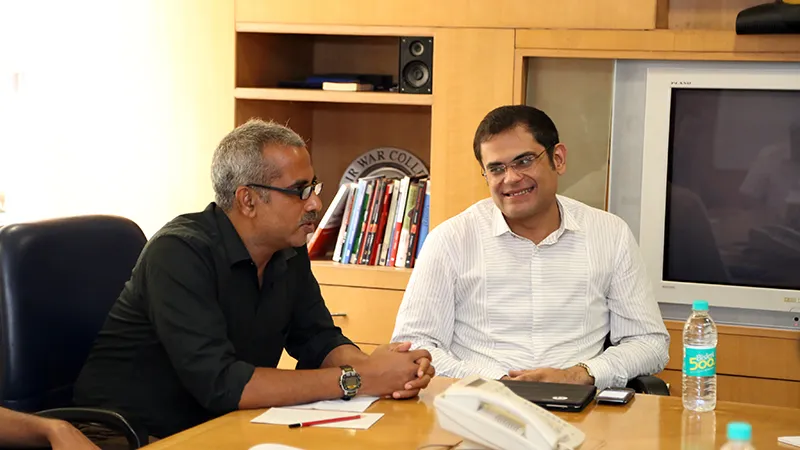-
CENTRES
Progammes & Centres
Location
In Pakistan, the debate today dominating the military and civilian circles is how to tackle the threat of terrorism, and not India. There is a growing feeling among the military leaders about the gravity of the threats posed by these terrorist groups to Pakistan.

Pakistan is undergoing several transformations, three of which are noteworthy for policy makers in Pakistan as well as outside, according to well known journalist and writer Raza Rumi. He was speaking at an interaction organised by Observer Research Foundation on August 7 in New Delhi.
The most apparent transformation, Mr Rumi said, was the demographic change taking place in Pakistan and its impact on public policy. Pakistan is the youngest and rapidly urbanising nation today in South Asia. About 70 per cent population is under 30 and 74 per cent of the people live in urban areas. Another significant indicator is that 54 per cent of students in public universities are women and there is an increasing presence of women in public as well as corporate life. In the National Assembly, the percentage of women parliamentarians in the last few years has been between 60 and 70.
Second visible change in Pakistan is the public attitude towards India. India is no longer the enemy number one; it is the US. There is a strong belief that the US was interested in neutralising Pakistan’s nuclear capabilities. There is also a belief that post-2014, the US would revert to its policy of abandonment. The US-Pakistan relations tend to follow a cyclical nature. A decade-long engagement of providing aid and assistance is followed by an equally long period of abandonment and sanctions.
This shift of public opinion is amply reflected in the broader support for a better relationship with India. Trading with India is likely to benefit all sections of the Pak economy, except three - agriculture, pharmaceuticals and automobiles. However, for there to be a genuine policy change in Pakistan’s approach to India and the militants, there has to be greater dominance of civil government over the military, Mr Rumi said.
The third is the changes taking place within the military. There is an increased realisation within the military establishment about the consequences of supporting terrorist activities against Afghanistan and India. There is a widespread consensus that the Pakistan was suffering from the blowback of Afghan Jihad. There is a growing feeling among the military leaders about the gravity of the threats posed by these terrorist groups to Pakistan. The debate today dominating the military and civilian circles is how to tackle the threat of terrorism, and not India.
As far as Afghanistan is concerned, Pakistan is averse to the idea of the Taliban dominating the political landscape in Afghanistan post-2014. However, it would still want an Afghan government that would be pliant. There are worries in Pakistan about India’s growing role in Afghanistan. These concerns are supplemented by suspicions of Indian involvement in Balochistan. The authorities, however, have not been able to give any convincing evidence of India’s role in fomenting violence in Balochistan.
Mr Rumi said the Sino-Pakistan ties were purely a military one. Pakistan’s decision to allow China to operate the Gwadar Port should be seen as its reaction to India’s role at Chabahar.
The views expressed above belong to the author(s). ORF research and analyses now available on Telegram! Click here to access our curated content — blogs, longforms and interviews.